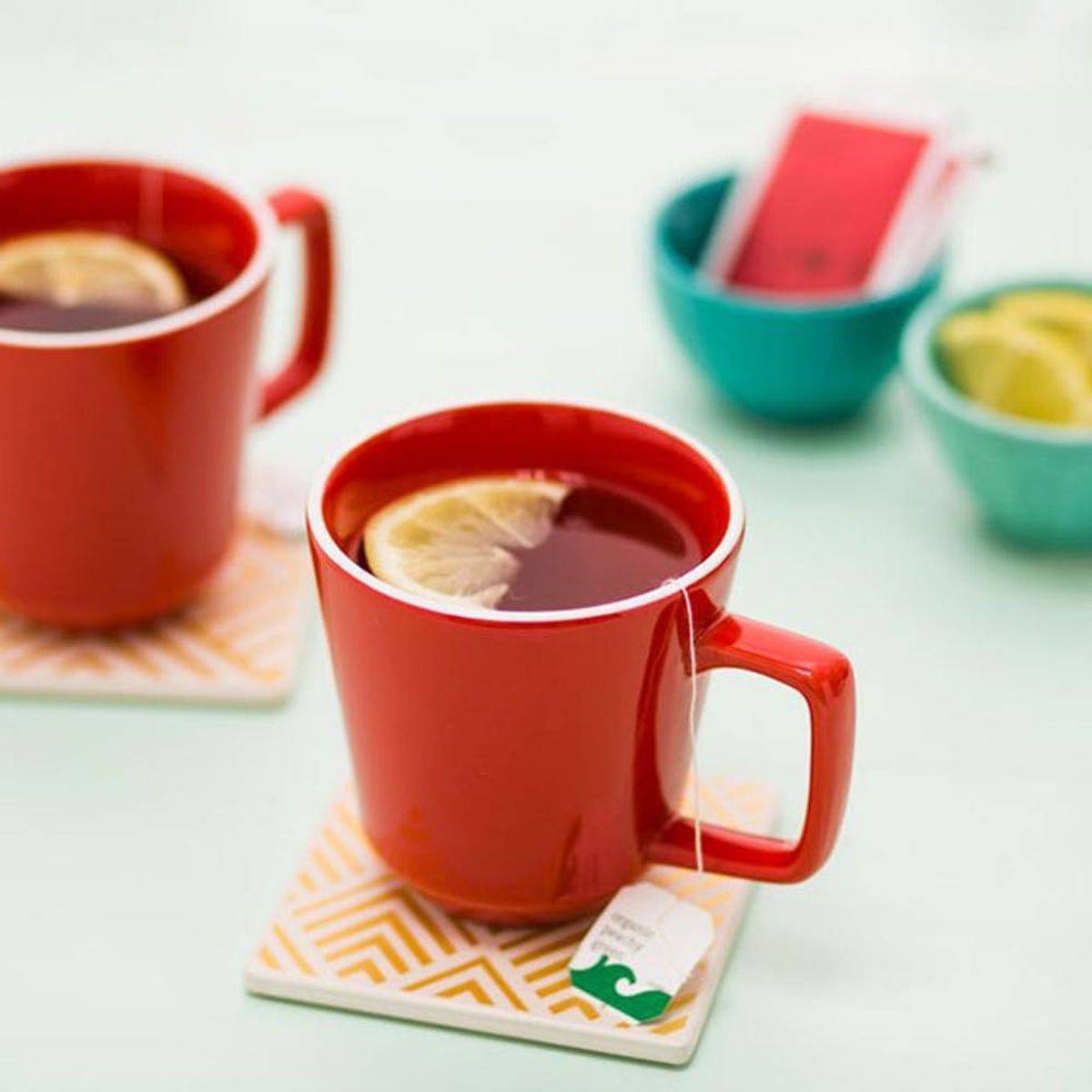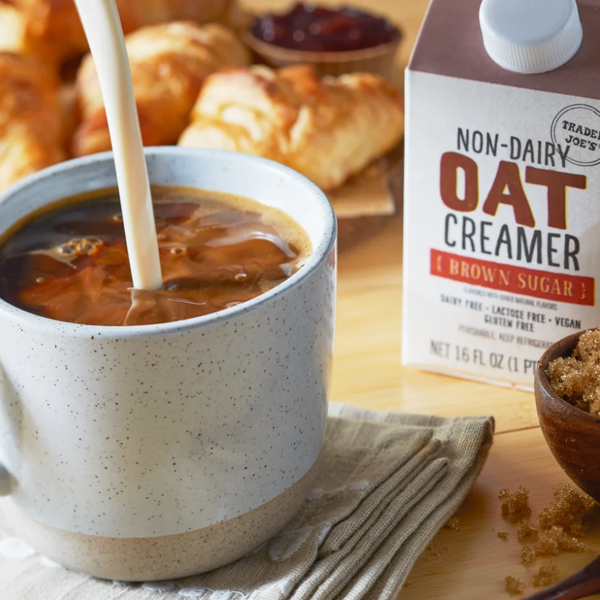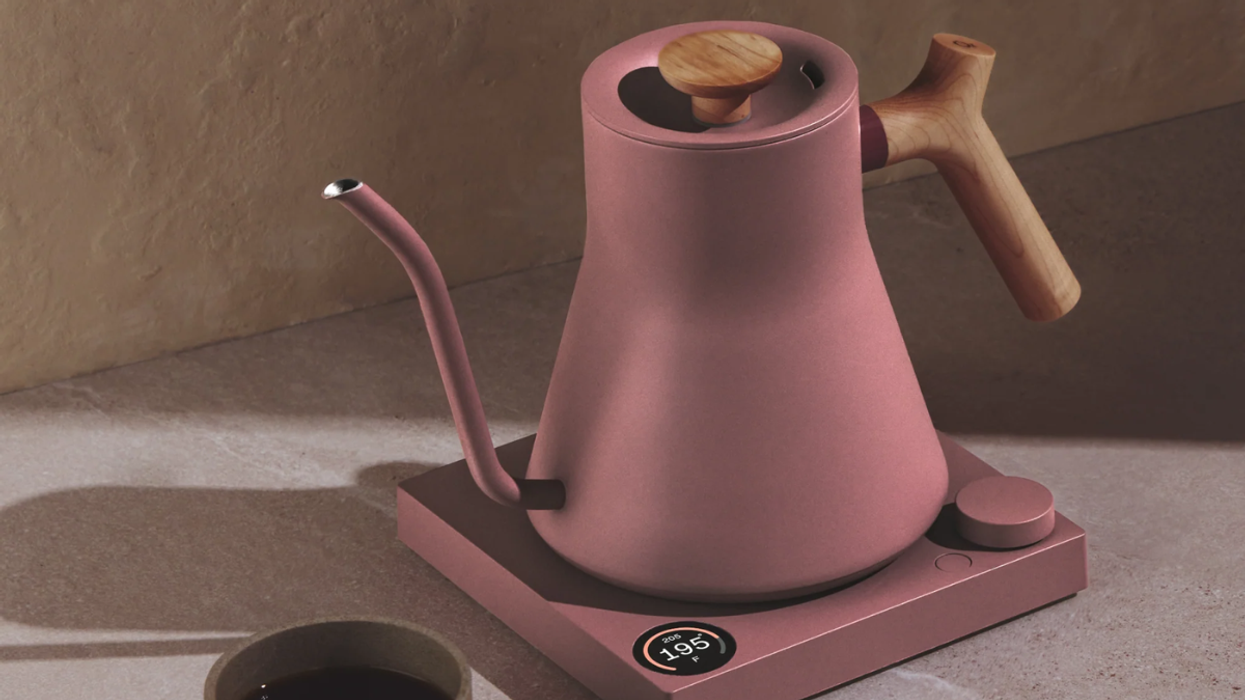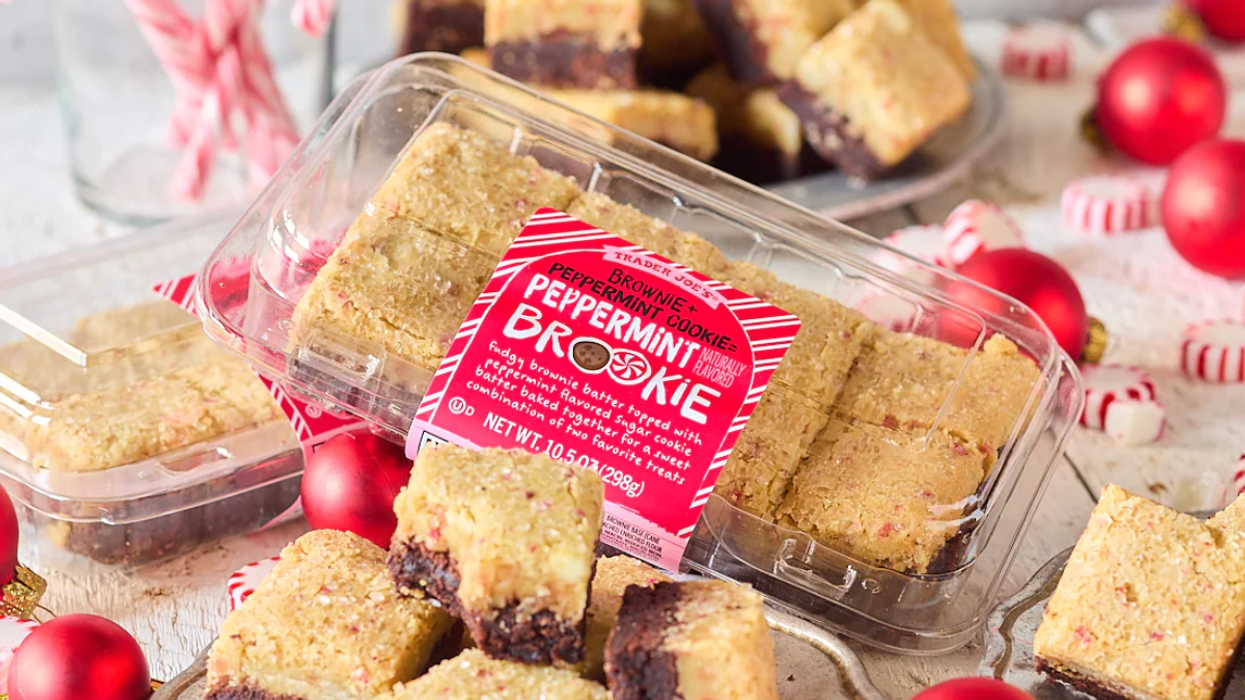Reconsider that PSL next time you go to Starbucks — there are healthier ways to get your caffeine dose!
The Healthiest Caffeine Options to Get You Through Your Day

Caffeine is everything to some people. They need the smell of coffee to get them out of bed in the morning; they need to hear the pop of that first Red Bull of the day to really get them going. For others, the jittery side effect and crash that caffeinated drinks can bring on is a total turn off and can actually slow them down throughout their day. Womp womp.
There are some solid options for when you need a boost without the crash, though, and they’re way healthier than a latte, too. We got insight into healthy caffeinated alternatives from Lauren Purvis, founder + CEO (and girl boss) of the green tea and matcha emporium Mizuba Tea Company, Jordan Schuster, founder + CEO of the edible espresso brand Il Morso and Andy Hayes, founder + creator of the monthly tea subscription service Plum Deluxe. Note that it’s important to understand your body and how it reacts to caffeine before you totally go cold turkey and quit coffee (you could get really bad headaches) or before you commit to a trying a new caffeinated drink. That said, check out the expert-approved list below.
1. Kombucha: If you want a subtle energy boost, lots of health benefits and billions of probiotics workin’ their magic on your mind + body, guzzle down some Kombucha. The drink goes through a fermentation process, which results in a teensy bit of alcohol in the drink, which isn’t to be confused with boozy Kombucha punch ;). This stuff comes in a bunch of flavors and can be made organically, too. Taking a more natural approach to caffeine, Kombucha will give you a bit of a pep in your step and can wake you up in the morning thanks to its slightly fizzy (in a good way!) taste. Kombucha is also great if you have digestion issues after sitting all day long (office, lecture, whatever) because those probiotics coat your stomach which aids in digestion. What’s even better about Kombucha is that you can DIY your own — so you *really* have no excuse not to try it.
2. Matcha: Matcha is a great alternative for coffee if you are still really looking for that energy boost without the jitters and headaches. Matcha is 100% pure tea leaves ground into a super fine powder — it’s different from green tea, for example, because you actually are consuming the entire tea leaf with matcha. Lauren explained that it gives you sustained, controlled energy (so you are focused throughout the day) and kicks up one’s metabolism. Those mid-morning and/or mid-afternoon slumps can be tackled head-on by adding some matcha in yo’ life! It has a slightly sweet taste that can pair well with a lot of things. There are a bunch of matcha recipes you can make so you can get a little energy boost from unexpected food items, like oatmeal (or chocolate matcha truffles, NBD) — Lauren actually swears by matcha oatmeal as the perfect meal to start her day. Starbucks has matcha powder you can add to any drink (though I think it’s great shaken with just water) so next time you’re about to order a PSL (now that you know when they’ll be avail) at the ‘Bux, give this powerful green powder a try.
3. Tea: Tea is like a one-stop-shop when it comes to why you should drink it up: you not only get a healthy, manageable dose of caffeine (in most teas) but you also get vitamins, trace minerals and tons of antioxidants, Andy said. Since tea is made of natural ingredients, it’s a healthy option and easy to make your own! There’s something nurturing about pouring yourself a steaming hot beverage, and tea takes that a step further by adding in the sensory experience of SMELL which can wake you up in itself. “Today’s fast-paced culture doesn’t allow us to be mindful, and making yourself a cup of tea (or your own blend of iced tea) allows you to do just that.” If you are super into tea, Plum Deluxe offers a Birchbox-like monthly subscription box for tea so you can find a flavor that invigorates you.
4. Edible energy: Instead of pouring up, why not chow down on your caffeine? From energy-giving snack bars to *cookies* to skinny pumpkin energy bites, there are SO many ways you can put food in your body while also waking it up (including drinking apple cider vinegar to get extra pep!). On that note, we never said espresso couldn’t be enjoyed and consumed in a healthy way; it’s just about controlling your intake and not going overboard, which is easy to do, so why not eat it? Jordan explained that coffee can make us jittery because of complex phytocompounds which stimulate our central nervous systems while lessening feelings of fatigue. It’s all good at first, until you over do it and feel like crap. This is where *eating* your caffeine comes in: “Experimenting with foods that offer stimulation and other physical enhancements can be helpful,” Jordan told us. Espresso beans are a fun alternative to a cup of joe when you’re in a rush but still need a pick-me-up — the edible bites actually offer metered caffeine, so that the measured caffeine intake is more controlled.
Will you consider any of these healthy caffeine options? Share your thoughts with us in the comment section below.


















